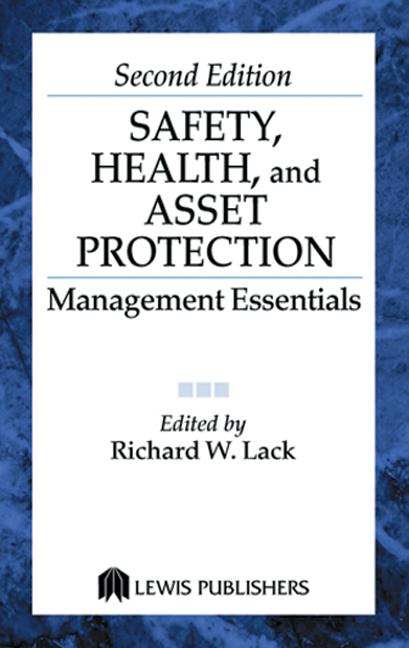Laser pranksters create real danger in the skies, the construction industry gets a little more time for a big new rule and impalement hazards endanger workers in Texas. These were among the top stories posted on ISHN.com this week.
Oil & gas group says offshore well regs may have unintended consequences
The American Petroleum Institute says it welcomes the federal government’s effort to align regulations for offshore well control with industry standards, but with a caveat: a warning that the unintended consequences of some elements of the proposed rule could make offshore operations less safe.
Trench collapse seriously injures worker
Hassell Construction fined $424K for egregious safety violations
One minute, a man was working in the 8-foot trench below ground. The next, he was being buried in it. His co-workers came to his rescue, digging the worker out with their bare hands. Moments after they pulled the injured man to safety, the unprotected trench collapsed again. His injuries were serious and led to his hospitalization.
Labor Secretary Tom Perez came into office pledging to create good jobs and take on the economic injustice that oppresses blue-collar workers, from raising the minimum wage and restoring unpaid overtime to combatting wage theft.
With the summer vacation season in full swing, millions of Americans are on the road – roads that they must share with some very large vehicles. Through its Share the Road program, the American Trucking Association is using professional truck drivers to let the public know what they can do to stay safe.
OSHA inspectors found that employees of at a Shenandoah, Texas construction site were exposed to a variety of dangers, earning citations for both the company conducting the work and the one that supplied it with temporary workers.
“Everyone has a part to play” to help ensure underground utility safety and damage prevention. That’s the message of a new video and related online and print resources from the Association of Equipment Manufacturers (AEM).
OSHA says it will postpone enforcing its Confined Spaces in Construction standard in response to requests for additional time to train and acquire the equipment necessary for compliance.
UMass Amherst scientist will investigate role of estrogen-mimicking chemicals
A lot of attention has been paid to genetics in breast cancer as disease rates rise, but most women have no family history of the disease, suggesting that there is an environmental risk we don’t yet understand, says environmental health scientist Laura Vandenberg in the School of Public Health and Health Sciences at the University of Massachusetts Amherst.
The U.S. Department of Transportation's National Highway Traffic Safety Administration (NHTSA) has released an advance notice of proposed rulemaking (ANPRM) that is the first step of a larger agency initiative to upgrade the standards for truck and trailer underride crash protection.
American Conference of Governmental Industrial Hygienists (ACGIH) has announced the release of its two-tier Under Study list pursuant to changes previously made to its TLV®/BEI® Development Process.
Kill a worker? You're not a criminal. Steal a worker's pay? You are one.
Professional truck drivers offer highway safety tips
Texas workers exposed to falls, impalement, struck-by hazards
AEM releases underground utility safety video
Construction industry gets more time for confined space compliance
Could some cancers start before birth?
New DOT rule would improve truck crash protection – at a cost
ACGIH® announces release of two-tier Under Study list
OSHA updates procedures for protecting healthcare workers from TB
OSHA has updated instructions for conducting inspections and issuing citations related to worker exposures to tuberculosis in healthcare settings. This instruction incorporates guidance from the Centers for Disease Control and Prevention report, "Guidelines for Preventing the Transmission of Mycobacterium Tuberculosis in Health-Care Settings, 2005*."
Spate of laser incidents in NJ highlights danger to airplanes
Last week’s reports of lasers being pointed at 34 commercial jets as they flew over New Jersey were noteworthy for the sheer number of incidents involved, but unfortunately, are part of a trend that has become all too common. The FAA says last year, it logged 3,894 incidents of lasers pointed at airplanes, all over the country.
Europe grapples with asbestos issue
47K deaths per year v. billions to remove the substance
The total number of asbestos-related deaths in Europe could peak at 47,000 per year -- 50% higher than previously believed and double the number of deaths caused by road accidents – according to an expert who spoke last month at a conference entitled, Freeing Europe Safely from Asbestos.
Manufacturing company puts hazmat in checked luggage
Potentially explosive substances discovered when bag was screened
An employee of a California-based manufacturing company checked a bag containing undeclared hazardous material onto a passenger-carrying flight at Detroit Metropolitan Airport on Dec. 16, 2014.
But study shows we're trying to cut back
Americans consume too much sodium. In fact, the average daily intake among individuals aged 2 years and older in the U.S. is 3,500 mg per day, significantly higher than the recommended daily maximum of 2,300 mg – and that doesn’t even include salt at the table. However, according to a recent study by the Centers for Disease Control and Prevention (CDC), more than half of Americans now report watching or reducing the amount of sodium in their diets.
It’s no secret that telecom employees who climb cell towers for a living have dangerous jobs, but so far, most of the concern has focused on fall risks. The reason for that is clear: in the past decade, more than 90 workers have lost their lives from deadly falls, sometimes from over 1,000 feet.
One of 1,000+ injuries in 3 1/2 years at one worksite
A 56-year-old employee of furniture manufacturer Ashley Furniture Industries Inc. had his right ring finger amputated because the company has continued to ignore safety requirements to protect workers from moving machine parts. The company also failed to report the injury to OSHA, as required.
A Birmingham, Alabama social services company was well aware that its employees were being injured by violent clients for several years, yet took no action to protect its workers, according to OSHA, which issued Gateway one general duty clause citation for failing to protect employees from the hazards of physical assault while providing care for adolescent children and teenagers known to exhibit violent behavior tendencies.
Too much salt
IBEW to OSHA: Investigate potential radiation danger
Ashley Furniture didn’t report amputation
From bites to stab wounds: Company didn’t protect workers who dealt with violent kids


